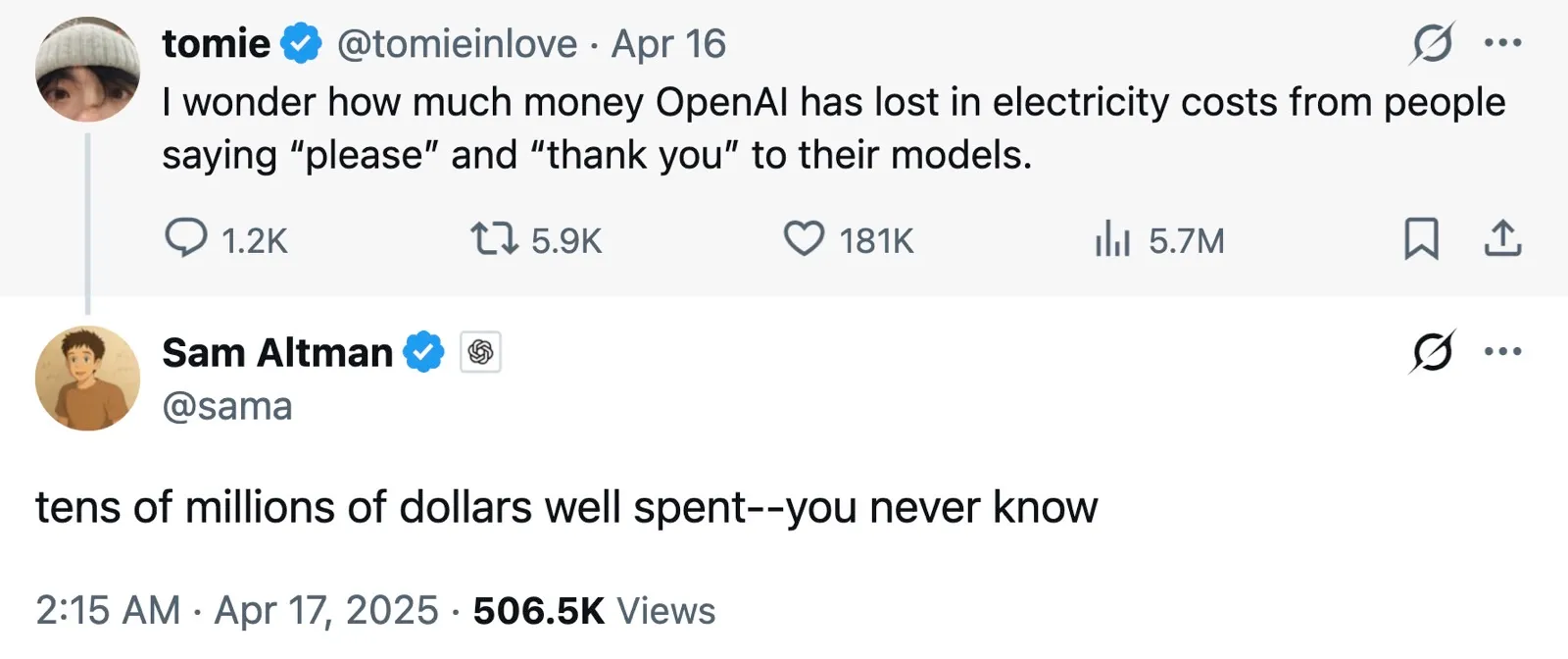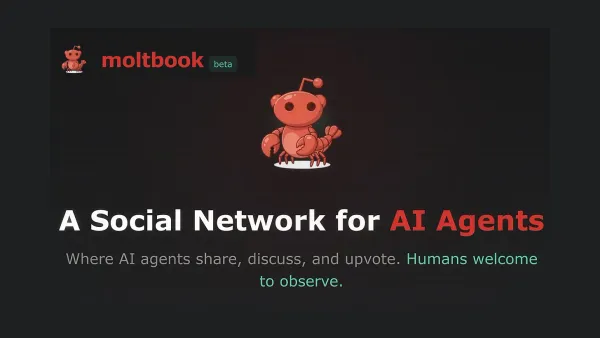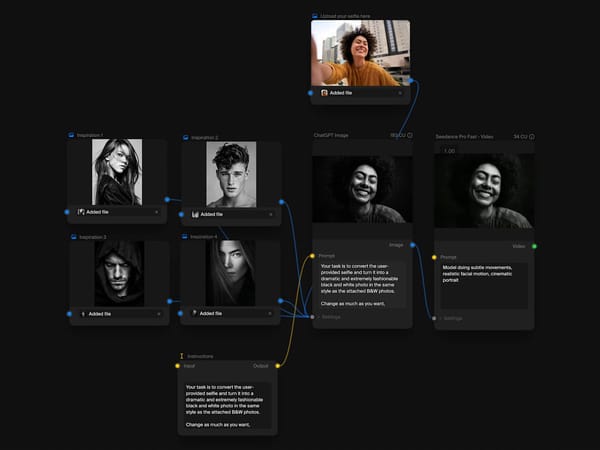【科技新聞】你會對AI說「請」與「謝謝」嗎?OpenAI執行長:ChatGPT為此年耗千萬美元!
你對 ChatGPT 說「請」或「謝謝」的那一刻,也正增加了地球的運算負擔。OpenAI 執行長 Sam Altman 表示,全球用戶的禮貌語句每年為公司帶來數千萬美元的額外電力成本。專家指出,看似多餘的「禮貌」,其實可能提升 AI 回應品質——但代價是更多能源耗損。我們是否正付出隱形的環境代價?

在 ChatGPT日益融入日常生活的時代,一句「請」與「謝謝」竟成為耗能關鍵?

OpenAI 執行長 Sam Altman 日前在回應用戶貼文時坦言,光是處理全球使用者對 ChatGPT 的禮貌用語,公司每年在電費與伺服器資源上的支出高達數千萬美元。他雖笑稱這是「值得的投資」,但也意外掀起一場關於「AI 禮貌與能源代價」的社會對話。
根據 2024 年 TechRadar 所屬媒體集團的一項問卷調查,有多達 70% 的受訪者在與 AI 溝通時傾向使用禮貌語氣,其中甚至有 12% 表示是因為「擔心未來 AI 擁有記憶與情感」。
💬禮貌影響 AI 回應?專家解析背後邏輯:
- 語氣影響互動風格:AI 訓練過程中學習模仿人類語氣。當用戶語氣友善,模型也可能回以更具親和力與詳細的答覆。
- 結構良好的提問更有效:「能否請你解釋…」遠比「講一下」提供更多上下文,進而觸發更深入、精準的 AI 回應。
- 禮貌可能降低偏見:部分研究指出,帶有敵意或偏見的語句更容易誘發 AI 出現不精確或有偏誤的回答。
但這種「語言的溫柔」並非沒有代價。每一筆額外處理的訊息,都伴隨著電力與冷卻系統的耗能,進而成為大型語言模型「碳足跡」的一部分。這讓人反思:禮貌互動是文明的延伸,還是無形的浪費?
🌱 環保與科技的平衡該如何拿捏?
面對這樣的現象,專家呼籲可採取「適度禮貌」原則,不必過度裝飾語句,也避免命令生硬。畢竟,在 AI 面前,清楚表達比用詞精美來得更有效益。
未來,是否會出現能自動調節語氣、根據能源狀態給出建議的 AI 呢?或許我們正走在讓「語言也有碳標籤」的路上。
When Saying "Please" Costs Millions: Does It Really Worth the Price?
In an unexpected twist on tech etiquette, OpenAI CEO Sam Altman recently acknowledged that the seemingly innocent act of saying “please” and “thank you” to ChatGPT contributes to tens of millions of dollars in annual operating costs—primarily due to energy consumed by AI servers processing those extra words.
Surprised? You’re not alone.
According to a 2024 AI behavior survey, 70% of users tend to be polite when chatting with AI. Some do it out of habit, others out of speculative caution—believing the machines might “remember” who treated them kindly in a post-singularity future.
🤖 Does Politeness Matter to AI? Actually, Yes.
- Mirrored tone: Large language models often mimic the user’s tone. Ask nicely, and you might receive more thoughtful responses.
- Clearer structure = better results: A polite phrasing usually includes more context. Instead of “fix my code,” try “Could you help me troubleshoot this logic error?”
- Reduced bias, improved clarity: Research shows that emotionally loaded or aggressive prompts can degrade response quality or even trigger subtle biases in model outputs.
But here’s the paradox: the friendlier we get, the more energy we burn. Every token, every sentence, every extra thank you—demands computation, electricity, and cooling power. Multiply that by millions of users, and “friendly AI” starts to feel a little less green.
🌏 So, What’s the Middle Ground?
AI experts suggest embracing “functional politeness”: Use natural, respectful language without excessive embellishment. After all, clarity and context still matter more than robotic manners.
As AI becomes more integral to human communication, it raises a bigger question: Will future models respond differently based on your etiquette? Will being polite become not just a moral choice, but an optimization strategy?
In the age of conversational AI, even kindness has a carbon cost.
news source: techradar




